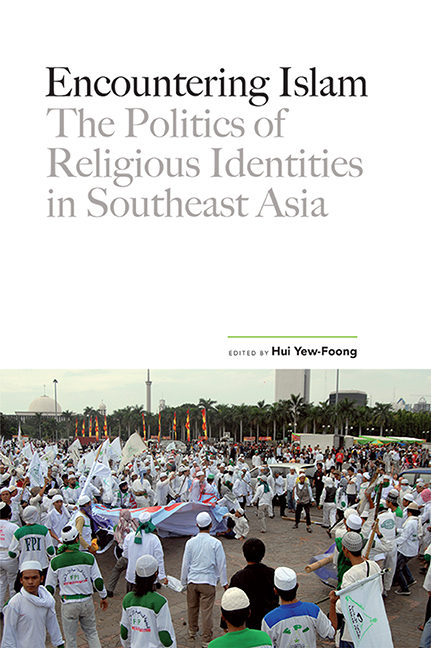Book contents
- Frontmatter
- Contents
- Acknowledgements
- Contributors
- Part I Introduction
- Part II Islam across Borders
- 2 Religious Elites and the State in Indonesia and Elsewhere: Why Takeovers are so Difficult and Usually Don't Work
- 3 “I was the Guest of Allah”: Modern Hajj Memoirs from Southeast Asia
- 4 The Aurad Muhammadiah Congregation: Modern Transnational Sufism in Southeast Asia
- Part III Malaysia
- Part IV Indonesia
- Part V Muslim Minorities
- Index
2 - Religious Elites and the State in Indonesia and Elsewhere: Why Takeovers are so Difficult and Usually Don't Work
from Part II - Islam across Borders
Published online by Cambridge University Press: 21 October 2015
- Frontmatter
- Contents
- Acknowledgements
- Contributors
- Part I Introduction
- Part II Islam across Borders
- 2 Religious Elites and the State in Indonesia and Elsewhere: Why Takeovers are so Difficult and Usually Don't Work
- 3 “I was the Guest of Allah”: Modern Hajj Memoirs from Southeast Asia
- 4 The Aurad Muhammadiah Congregation: Modern Transnational Sufism in Southeast Asia
- Part III Malaysia
- Part IV Indonesia
- Part V Muslim Minorities
- Index
Summary
The present age is really the same old age: It is either the men of prayer or the politicians who are in charge.
— Muhammad IqbalThis chapter argues that Iqbal was correct to identify two major kinds of elites — the “men of prayer” and “the politicians” — but that a scholarly rather than poetic consideration leads to the conclusion that “men of prayer” find it very difficult to be “in charge”. Rather, state-controlling elites — “the politicians” — typically maintain primacy. And — remarkably — this seems to hold true across times and cultures, despite social, cultural, political, economic and technological differences. Here we ask how such consistency can be explained. I will argue below that the answer is to be found in (1) an asymmetry of capacities between religious and state elites and (2) the different epistemological standing of the authority of those “men of prayer” and “politicians”.
In a consideration as full of slippery areas as this, we must be clear about our definitions at the outset. By religious elite, I mean here those who are defined, legitimated and inspired by their religious standing. They are the priests in religions that have priests, the ordained theologians in others, or — of particular relevance in the Indonesian and other Islamic cases — the learned scholars of the faith, the respected interpreters of scriptures, recognized as such by their community. This can be a problematic category in Islam, where formal processes by which one becomes such a person are few. By political elite or state-controlling elite, I mean those who control the state, its apparatus, institutions and symbols, or those who are in competition with other similar figures to do so. So these are the politicians of our day, the kings and emperors of previous days and their colleagues. In some states, this state-controlling elite includes the military.
In our present age, we see cases of such religious elites aspiring to control or to exercise decisive influence over states in order to carry out their religious, moral and legal agendas. Yet historically we rarely see such aspirations succeeding. It is necessary therefore to ask why that might be so, for the historical experience may shed light on contemporary circumstances.
- Type
- Chapter
- Information
- Encountering IslamThe Politics of Religious Identities in Southeast Asia, pp. 17 - 46Publisher: ISEAS–Yusof Ishak InstitutePrint publication year: 2012



